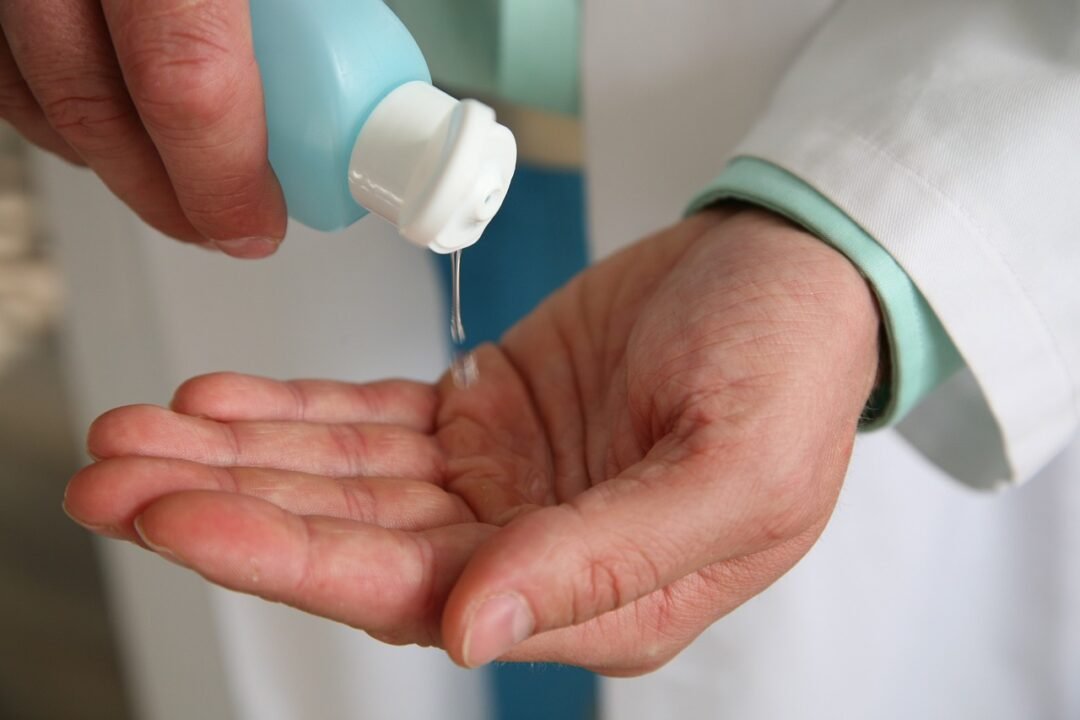In today’s world, keeping our hands clean is more important than ever. With the ongoing concerns about health and hygiene, hand sanitizers have become a staple in our daily lives. This is especially true in Singapore, where we always strive to maintain high standards of cleanliness and health. But with so many options and new guidelines popping up, it can be challenging to know what’s best when it comes to hand sanitizers. That’s where our guide comes in handy!
In this article, we’ll dive into everything you need to know about hand sanitizers in 2024. We’ll cover the different types available, how they work, and what to look for in a good hand sanitizer. We’re also keeping it simple – no jargon or complicated terms, just clear, useful information that’s easy to understand. Plus, we’ll make sure you’re up-to-date with the latest safety guidelines and innovations. Whether you’re a busy parent, a health-conscious individual, or just someone who likes to keep their hands clean and germ-free, this guide has got you covered. So, let’s get started and find out more about the world of hand sanitizers in 2024!
Understanding Hand Sanitizer
Hand sanitizer is a liquid, gel, or foam used to decrease infectious agents on the hands. In Singapore, as elsewhere, the most common kind you’ll find contains alcohol. This is because alcohol is excellent at killing germs. Typically, these sanitizers contain between 60% and 95% alcohol, usually in the form of ethanol, isopropanol, or n-propanol. But there are also alcohol-free versions that use disinfectants like benzalkonium chloride.
Types of Hand Sanitizers:
- Gel Hand Sanitizers: The most familiar type, these are thick and easy to spread on your hands, providing good control over the amount used.
- Foam Hand Sanitizers: These are becoming more popular in public places in Singapore. They spread easily and feel lighter on the skin.
- Liquid Hand Sanitizers: Often found in spray bottles, these are great for quick application and can be less sticky.
Each type has its own benefits. Gels are great for personal use, while foams are often preferred in offices and public spaces for their ease of spreading and quick evaporation. Liquid hand sanitizers are ideal for a quick clean-up or for surfaces.
Understanding these types will help you choose the best one for your needs, whether you’re at home, work, or on the go in Singapore’s bustling streets. In the next section, we’ll look at how effective these sanitizers are against germs and viruses, so you can be confident in your choice.
Effectiveness of Hand Sanitizers
How Hand Sanitizers Work:
Hand sanitizers are designed to kill germs quickly and effectively. The alcohol in these sanitizers works by breaking down the outer coating of germs and viruses, rendering them inactive. This is especially important in a busy city like Singapore, where we come into contact with countless surfaces every day.
Efficacy in Different Situations:
While hand sanitizers are highly effective, they are not a one-size-fits-all solution. They work best on hands that aren’t visibly dirty or greasy. If you’ve been gardening, cooking, or playing sports, it’s better to use soap and water. In medical settings, where the risk of germ transmission is higher, using a hand sanitizer with at least 60% alcohol is recommended. For everyday use, such as after touching door handles or using public transport, hand sanitizers offer a convenient and effective way to keep your hands clean.
Limitations and Considerations:
Hand sanitizers can’t remove all types of germs, and they might not work as well on certain substances, like pesticides or heavy metals. It’s also important to use them correctly – applying a sufficient amount and rubbing it all over the surfaces of your hands until they’re dry.
Safety and Regulatory Guidelines
Safety and proper use are crucial when it comes to hand sanitizers, especially in a health-conscious society like Singapore. Here’s what you need to know about the safety and regulatory standards for hand sanitizers in Singapore.
Ingredients to Avoid:
In 2024, it’s essential to be aware of certain ingredients that could be harmful. For instance, methanol, sometimes used in counterfeit hand sanitizers, can be toxic when absorbed through the skin. Singapore’s Health Sciences Authority (HSA) advises against products containing methanol. Also, watch out for 1-propanol, which can be harmful to the central nervous system.
HSA Guidelines:
The Health Sciences Authority in Singapore regulates the sale and distribution of hand sanitizers. As of 2024, hand sanitizers are considered over-the-counter products and must comply with HSA’s regulatory guidelines. These guidelines ensure that the sanitizers sold in Singapore are safe and effective. They require that hand sanitizers have an appropriate concentration of alcohol (typically between 60% to 95%) to be effective against germs.
Safe Usage Practices:
To use hand sanitizers safely, follow these simple tips:
- Apply a coin-sized amount to the palm of one hand.
- Rub your hands together, covering all surfaces of your hands and fingers, until they are dry. This should take about 20 seconds.
- Avoid touching your face, especially your eyes, nose, and mouth, until your hands are dry.
- Keep hand sanitizers out of reach of children and supervise their use.
It’s also important to note that hand sanitizers are a supplement to, not a substitute for, regular handwashing with soap and water.

Environmental Impact and Sustainability
As Singapore progresses towards being a more eco-conscious nation, understanding the environmental impact of hand sanitizers becomes increasingly important. Here’s how hand sanitizers fare in terms of sustainability and what you can do to make more environmentally friendly choices.
Eco-friendly Formulations:
In 2024, there’s a growing trend towards more sustainable hand sanitizer options. Many brands are now offering formulations that are biodegradable and made from naturally derived ingredients. Alcohol-free sanitizers that use organic compounds can be less harmful to the environment. Additionally, the inclusion of natural moisturizers like aloe vera or essential oils is gaining popularity, reducing the reliance on synthetic chemicals.
Packaging and Waste Reduction:
The packaging of hand sanitizers also plays a significant role in their environmental impact. To minimize waste, many companies in Singapore are shifting towards recyclable or reusable packaging. For instance, refillable sanitizer bottles have become more common, encouraging users to refill rather than discard. Some brands even offer sanitizers in bulk containers, reducing the need for frequent purchases of smaller, single-use plastic bottles.
Moreover, awareness about the proper disposal of hand sanitizer containers is crucial. Ensure that empty containers are recycled according to Singapore’s recycling guidelines, helping to reduce plastic waste and its impact on the environment.
By choosing eco-friendly hand sanitizers and being mindful of packaging and disposal, you not only keep your hands clean but also contribute to a greener, more sustainable Singapore.
Hand Sanitizer and Skin Health
While hand sanitizers are essential for killing germs, it’s equally important to consider their effects on skin health. Frequent use of hand sanitizers, especially those with high alcohol content, can lead to dry skin or irritation. Let’s look at how to maintain healthy skin while using hand sanitizers.
Moisturizing and Skin-Friendly Formulas:
In 2024, many hand sanitizers available in Singapore include ingredients that help offset the drying effects of alcohol. Look for products that contain moisturizers like glycerin, aloe vera, or hyaluronic acid. These ingredients help keep your skin hydrated and prevent dryness. Some sanitizers also have vitamins like Vitamin E, which nourish the skin and promote its health.
Allergies and Sensitive Skin:
For those with sensitive skin or allergies, it’s crucial to choose hand sanitizers carefully. Avoid products with fragrances or dyes, which can cause allergic reactions or skin irritation. Hypoallergenic hand sanitizers, specifically formulated for sensitive skin, are available and are a great choice for those who experience skin reactions to standard sanitizers.
Tips for Maintaining Healthy Skin:
- Use Moderately: Apply hand sanitizer only when necessary, such as when soap and water are not available.
- Follow with a Moisturizer: After the sanitizer has dried, apply a good-quality moisturizer to your hands.
- Patch Test New Products: Before using a new hand sanitizer extensively, do a patch test to check for any adverse reaction.
- Consult a Dermatologist: If you experience severe dryness or irritation, consult a dermatologist for advice.
By being mindful of these tips, you can enjoy the benefits of hand sanitizers without compromising the health of your skin.

The Future of Hand Sanitizer
As we look ahead, the future of hand sanitizers is shaping up to be both innovative and exciting. With advancements in technology and a greater emphasis on health and hygiene worldwide, hand sanitizers are evolving to meet these new demands. Let’s explore what the future holds for this essential hygiene product.
Innovations and Trends:
- Advanced Formulations: Future hand sanitizers may include advanced ingredients like panthenol that offer longer-lasting protection against germs and skincare properties without the need for frequent reapplication.
- Smart Dispensers: We might see more smart dispensers that provide the exact amount of sanitizer needed, reducing waste. These dispensers could also be connected to apps to remind users about regular hand cleaning.
- Natural and Organic Options: With a growing preference for natural products, there’s likely to be an increase in organic hand sanitizers made from sustainable and eco-friendly ingredients.
Emerging Needs and Global Health:
The importance of hand hygiene has been highlighted by global health challenges like the COVID-19 pandemic. As a result, there’s an increased focus on:
- Global Accessibility: Efforts to make hand sanitizers more accessible, especially in public spaces and developing regions.
- Educational Initiatives: Increased public awareness campaigns on the importance of hand hygiene, especially in schools and communities.
- Healthcare Settings: Enhanced sanitizer formulations specifically for healthcare settings to prevent the spread of more resistant germs and bacteria.
The future of hand sanitizers in Singapore and globally is not just about the product itself but also about how it integrates into our daily lives and contributes to public health. By embracing these innovations and trends, we can look forward to a world where hand hygiene is more effective, accessible, and aligned with our health and environmental values.
Throughout this guide, we’ve explored the various aspects of hand sanitizers, their importance, and how they’ve adapted to the changing needs and standards of 2024. From understanding the basic types and compositions of hand sanitizers to diving into their effectiveness, safety regulations, environmental impact, and their relationship with skin health, we’ve covered a lot of ground. We also looked ahead to the exciting future of hand sanitizers, anticipating innovations that will make them more effective, eco-friendly, and accessible.
In Singapore, where cleanliness and health are top priorities, staying informed about hand hygiene products like hand sanitizers is crucial. Remember, while hand sanitizers are an excellent tool for maintaining hygiene on the go, they should be used in conjunction with regular hand washing with soap and water.
As we adapt to new health challenges and embrace eco-conscious living, the role of hand sanitizers in our lives is more significant than ever. Whether you’re choosing a sanitizer for personal use, for your family, or for your workplace, keep in mind the information and tips shared in this guide. By making informed choices, we can all contribute to a healthier, safer, and cleaner environment in Singapore and beyond.





